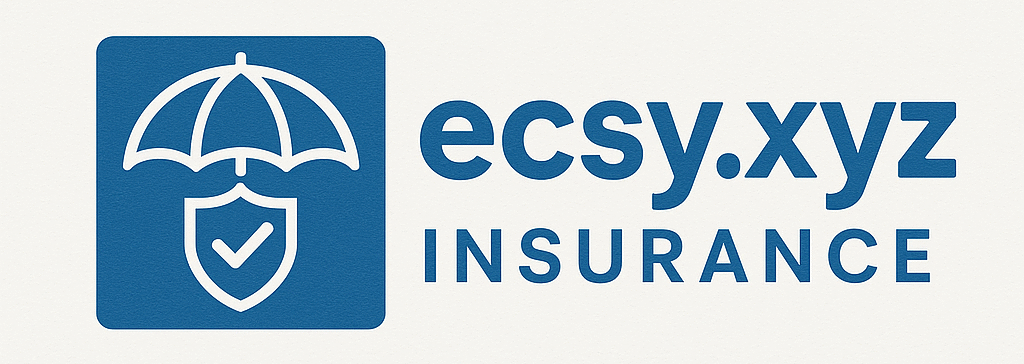In today’s interconnected world, international health insurance is no longer a luxury—it’s a necessity. Whether you’re a frequent traveler, an expat, a digital nomad, or relocating for work or study, having comprehensive international medical coverage ensures peace of mind and financial protection against unexpected medical emergencies abroad. This guide will walk you through every critical aspect of buying international health insurance as a beginner.

What is International Health Insurance?
International health insurance is a type of insurance policy that provides medical coverage beyond your home country. Unlike travel insurance, which typically covers emergencies for short trips, international health insurance offers long-term, comprehensive coverage for individuals residing or working abroad. These plans include routine checkups, hospitalization, maternity care, emergency evacuation, and sometimes dental and vision benefits.
Who Needs International Health Insurance?
You should consider international medical insurance if you fall into any of the following categories:
-
Expats living abroad long-term
-
International students
-
Digital nomads and remote workers
-
Employees on overseas assignments
-
Frequent international travelers
-
Retirees relocating to another country
Key Features to Look For in a Global Health Insurance Plan
1. Global Network of Hospitals and Doctors
A top-tier international health plan should give you access to a vast network of medical providers worldwide. This ensures you’re covered whether you’re in Paris, Bangkok, or Rio de Janeiro.
2. Portability of Coverage
Look for plans that are portable, meaning you can move from one country to another without losing coverage or having to reapply.
3. Customizable Benefits
Many insurers offer modular plans where you can choose the benefits that matter most to you—such as outpatient care, maternity, mental health, or dental coverage.
4. Emergency Evacuation and Repatriation
In case of a severe medical emergency, some areas may not have the facilities you need. Emergency evacuation coverage ensures you’re transported to the nearest suitable hospital. Repatriation takes care of returning you to your home country if necessary.
5. 24/7 Multilingual Customer Support
Global health issues don’t work 9-to-5. Ensure your provider offers 24/7 support in multiple languages, especially English.
How Much Does International Health Insurance Cost?
The cost of international health insurance depends on various factors:
-
Age of the applicant
-
Coverage limits and benefits selected
-
Destination country or region
-
Pre-existing medical conditions
-
Deductibles and co-pays
As a ballpark, premiums can range from $500 to $10,000 per year, depending on the coverage you choose. High-risk areas and older age brackets tend to cost more.
Top International Health Insurance Providers
Here are some of the best global health insurance providers trusted by expats and travelers worldwide:
-
Cigna Global – Known for customizable plans and broad international reach
-
Allianz Care – Offers premium plans with extensive benefits
-
IMG Global – Affordable options for students and digital nomads
-
Bupa Global – Premium provider with global hospital networks
-
GeoBlue – Ideal for U.S. citizens living abroad
Always compare providers based on benefits, reputation, and network availability in your destination country.
Step-by-Step Guide to Buying International Health Insurance
Step 1: Assess Your Needs and Lifestyle
Think about your destination(s), length of stay, healthcare quality, and personal medical history. Do you need routine care, specialist access, or chronic illness management?
Step 2: Research and Compare Plans
Use online comparison tools and contact insurers directly to evaluate different options. Consider:
-
Coverage areas (worldwide or region-specific)
-
Inclusions and exclusions
-
Waiting periods
-
Maximum coverage limits
Step 3: Understand the Fine Print
Carefully read policy documents to understand what is and isn’t covered. Pay close attention to:
-
Exclusions (e.g., pre-existing conditions, extreme sports injuries)
-
Waiting periods (especially for maternity and dental)
-
Claim procedures and reimbursement methods
Step 4: Get Quotes and Budget Accordingly
Ask for personalized quotes based on your profile. Evaluate premium costs against coverage to ensure value for money.
Step 5: Check for Local Requirements
Some countries require proof of international or local health insurance to grant visas or residency. Make sure your plan complies with local regulations.
Step 6: Apply and Submit Medical Information
Once you’ve selected a plan, complete the application and provide any required medical history. Some insurers may request a physical exam or medical reports.
Step 7: Receive Confirmation and Policy Documents
Upon approval and payment, you’ll receive policy documents, ID cards, and contact details for emergency services. Keep digital and physical copies handy.
Common Mistakes to Avoid
-
Assuming travel insurance is sufficient for long-term stays
-
Not disclosing pre-existing conditions (can lead to denied claims)
-
Choosing the cheapest plan without reviewing coverage limits
-
Ignoring coverage exclusions and limitations
-
Overlooking renewal terms and age-related premium hikes
International Health Insurance vs. Travel Insurance
| Feature | International Health Insurance | Travel Insurance |
|---|---|---|
| Duration | Long-term (6 months to lifetime) | Short-term (up to 90 days) |
| Coverage | Comprehensive, includes routine care | Emergency-focused |
| Portability | Often portable across countries | Limited to trip duration |
| Price | Higher premiums | Lower premiums |
| Use Case | Expats, workers, students | Vacationers, short-term visitors |
Is International Health Insurance Worth It?
Absolutely. With the rising cost of healthcare globally and uncertainties like pandemics or civil unrest, global health insurance is a smart investment. It’s your safety net when living, studying, or working abroad—and often, a legal requirement for long stays.
Tips for Making the Most of Your Plan
-
Keep documents accessible at all times—digitally and physically
-
Use in-network providers to maximize benefits
-
Save all medical receipts and documentation for claims
-
Renew your policy on time to avoid lapses in coverage
-
Keep the insurer informed of any changes in residence or health status
Final Thoughts
Navigating the landscape of international health insurance can be overwhelming, especially for first-timers. But with careful research, clear understanding, and a tailored plan, you can protect your health and finances no matter where life takes you.
Remember: The right policy doesn’t just pay your bills—it opens doors to the best healthcare worldwide.
Frequently Asked Questions (FAQs) About International Health Insurance
1. Is international health insurance mandatory for expats?
In many countries, yes. Governments often require proof of valid international or local health insurance as a prerequisite for:
-
Long-term visa approval
-
Residency permits
-
University admissions
-
Employment contracts
Even if not legally required, it’s highly recommended for financial protection and access to high-quality healthcare facilities.
2. Can I keep my home country insurance while abroad?
Typically, domestic insurance policies do not cover treatments outside your home country, except in limited emergency situations. Furthermore, insurers may terminate or suspend your policy if you’re abroad for an extended period.
Therefore, having a dedicated international health insurance plan is essential for full protection while living overseas.
3. What is the difference between inpatient and outpatient coverage?
-
Inpatient coverage refers to medical care that requires hospitalization, such as surgery, overnight observation, or intensive care.
-
Outpatient coverage includes services without hospital admission, like doctor consultations, diagnostics, therapy, and minor procedures.
Comprehensive plans offer both, but basic ones might only cover inpatient care to lower premiums.
4. What happens if I develop a chronic condition while insured?
If your condition develops after your policy begins, it will be covered as part of the policy’s benefits, subject to any applicable waiting periods or exclusions.
However, if you let the policy lapse, that condition could be considered pre-existing under a new policy. That’s why continuity of coverage is crucial when dealing with long-term illnesses abroad.
5. Are maternity benefits included in international health insurance?
Maternity care is not automatically included in all international plans. When offered, note the following:
-
A waiting period of 10–24 months is common before maternity coverage kicks in.
-
It may include prenatal checkups, delivery, postnatal care, and newborn coverage.
-
Emergency childbirth is typically covered even without maternity add-ons, but only in life-threatening cases.
Always plan well in advance if you’re considering pregnancy while abroad.

